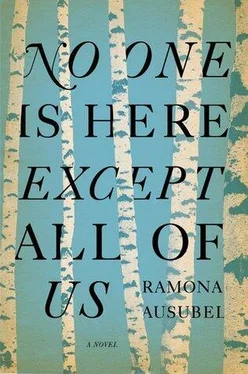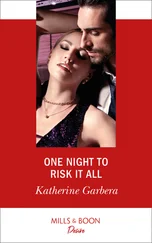“I’m not ready for the prayer,” I whispered. I pressed the baby hard to my chest, and for a second I thought he might slip right inside. Rejoin.
“We are supposed to say the prayer. That’s the prayer we say.”
I covered my ears and wept. I had never wanted to hit my son before. “No one is listening, don’t you see?”
The baby’s skin turned rubbery. His body became less and less. The heartless compass pointed away: always, farther and farther away. The sun rose to show us how beaten we were. The wind started to gather itself and throw our hair around, toss our spit and tears back at us, slapping our grief onto our skin. We have no use for this , the wind said of our tears, this is yours .
When the light had us pink and orange and looking like we were on fire, Solomon said, “We have to put him someplace. He needs a home.”
“And you? A home?”
“Not yet,” he told me, faith hanging on to its overwhelming opposite.
I carried my smallest boy away from the mattress. His legs were stiff and unmoving. We had no shovel with us in the field. We dug with our hands, cupping the clumps of dry dirt and moving them aside.
We did not get very deep. The earth turned us away, dry and unbreakable. We hit it with rocks, trying to make a crack but only freed a little dust. It was a long time before a small boat floated there, in which the baby could drift away. We laid the baby down, tucked just below the surface of the world.
“He never had a name,” Solomon said.
“He never told us what he wanted to be called.”
“Should we name him now? Should we call him Star or Wheat or Field?”
“None of those would be enough.”
So the baby went away the same as he had come: himself and nothing else. No name, no debts, no winnings. He had no road in front of him to walk, no food to find, no tears to lose, no mother and brother to pray for. He had only to sleep, and maybe dream, for as long as the earth kept turning.
That was the last night we lived as three, and all through it Solomon and I stayed as still as we could, though we did not sleep. We wanted to move no more than our third companion, to be like him, for us all to be like each other, lying still, as is natural to do, under the dark heavens and the uncountable stars.
THE BOOK OF HOME AND THE FUTURE, WHICH IS NOW
It began with a far-off yelling, the sound of voices loud enough to pound the grass flat.
Guns were shot.
The far-off yelling became less far off.
The villagers pulled in close to one another. Sleep still sat with them. One person, they did not know who, lit a lantern. All of them were mountainous piles with jagged faces. Someone else whispered to blow the lantern out, at least in the darkness they were invisible. The jagged faces went dark again but when everyone closed their eyes they could still see one another printed on the backs of their eyelids.
The stranger said, “Yes, I remember this. I remember all of this.” People shushed her, pleaded with their silent eyes. The jeweler met her gaze. He wanted to say that he remembered too, except that he did not — he had never lost everything at once before. Still, he wanted the stranger to know he believed her, and he also wanted her to assure him someone new would be there to gather them out of the river just as she had been gathered. That forever, no matter how many times they were washed away, another world would always meet them a little farther downstream.
“I remember my daughter. Her hair was scratchy on my shoulder. I remember my son’s laugh and how he curled his lip when he played,” the stranger said. Perl leaned closer to the stranger and reached her hand out, as if she was trying to tame a stray animal, quiet its yowling. The stranger shook her head. “I’m so sorry,” she said. “You have been very kind to me. You saved my life, but I remember the old world. I remember it perfectly. I remember every single thing I lost, and how each one smelled.”
The far-off yelling was close yelling. The guns were close guns. Boots broke whatever they came across. The people heard every snap. They watched the stranger nod at each sound. This was a symphony she had heard before.
“What happens next?” the banker asked her.
“Everything happens next,” the stranger said, and she clamped her eyelids shut.
Windows turned to water splashing back on itself. Doors slammed against walls. Unfamiliar voices shouted in the abandoned houses, Come out, you filthy creatures. Where are you? The moment has arrived.
And if the people could have seen the cavities of one another’s eyes? Would they have been so afraid that they would have fallen to the ground in piles of loose bones? Fear seemed hot enough to melt them.
Perl reached for her family — my family — took Vlad and Moishe and the tailor’s daughter close, their arms tangled together, holding firm. Regina and the widow were not in the room with everyone else — the only time Perl saw them anymore was through a prism of mustard jars. Perl ached to touch her daughters, but hoped hard that we were hidden someplace, and safe.
“Is this the end?” Moishe asked. He was old enough to be able to see both ahead and behind himself now, the clearing he had come through and the forest grown suddenly wild at his feet. His question was posed slowly, deliberately — a child trying to sound unafraid, as he supposed an adult would. Perl wanted to tell him how scared she was, how scared he was allowed to be.
“Stay close to me,” Vlad said. “Just do not go away from me.”
“If we get separated, send a letter here with your whereabouts,” Perl whispered. Vlad’s eyes were swarming with fear. Perl felt stung, as if by bees, when he looked at her. “Never ending,” she said, and pointed to her heart. The flutter of terrified wings did not calm in Vlad’s eyes. He squeezed her so tightly that both hands numbed and neither could tell which fingers stemmed from which palm. Vlad hummed very faintly through his nose, making a river of sound just big enough for his family to drift on. Moishe added his own soft hum, and Perl and the tailor’s daughter held on and on.
The banker’s wife saw the same ugliness of her heart after the baby’s death reflected in everyone else. Fear had eaten their eyes, it had caved their cheeks in. This was a strange comfort to her.
The stranger said, “Most of us are going to die, but not everyone. We will begin again, as many times as we need to. The end is the same thing as the beginning. Exactly the same. Lena will tell our story.”
“How will she know it?” Kayla asked.
“She will know,” the stranger said, sure. The jeweler memorized his lover’s words, wished the words were solid, were coins or pebbles he could squeeze in his fist. She opened her empty hands and said, “Thank you for being my family. It has been an honor. I remember who all of you are.”
The greengrocer thought about the census he and the rest of the Committee for What We Have and Where We Have It had so carefully written over months and years. What do we have now? he asked himself. If we die, every single one of us? The story, he thought, remained. Once told, it does not ever go completely away. It has no throat to slit. The greengrocer wanted to tell this theory to his wife, who was crying silently next to him, but when their eyes met he thought she might already know.
Kayla and Hersh quietly slipped out the door. Those inside could see them break through the trees but did not watch, averted their eyes, drawing no attention to the escape. Others did not try to join them and they did not throw the lines of their voices after Kayla and Hersh and reel them back into the struggle. The village simply let them disappear. Would they climb into a tree and nest there, a pair of unusually large crows?
Читать дальше












